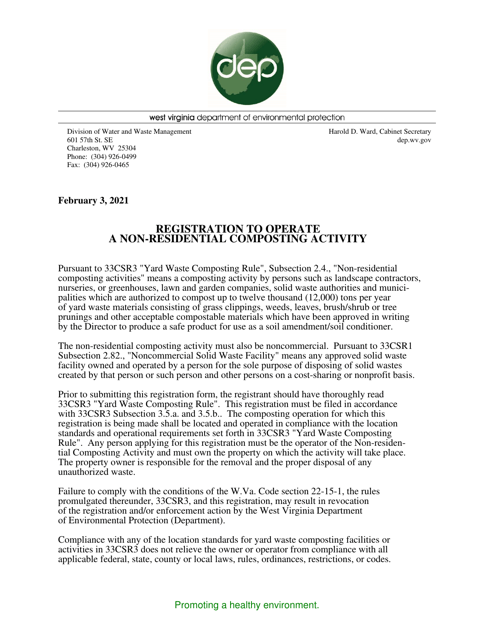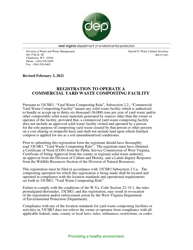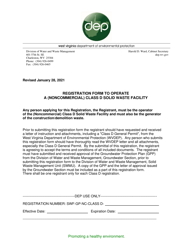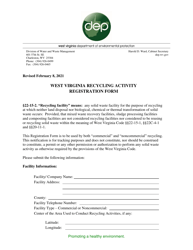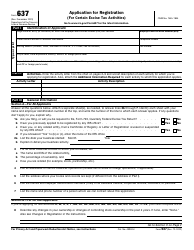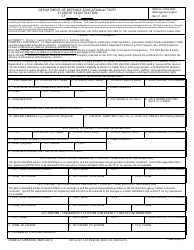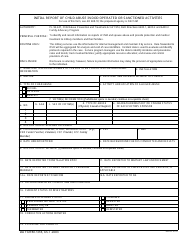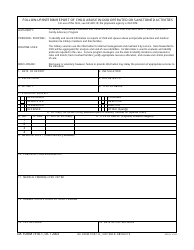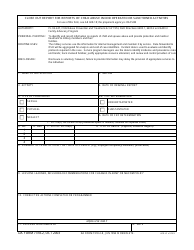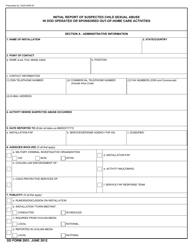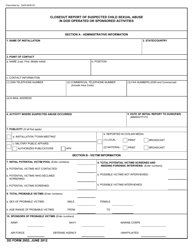Registration to Operate a Non-residential Composting Activity - West Virginia
Registration to Operate a Non-residential Composting Activity is a legal document that was released by the West Virginia Department of Environmental Protection - a government authority operating within West Virginia.
FAQ
Q: What is a non-residential composting activity?
A: A non-residential composting activity is a composting operation that is not located on a residential property.
Q: Do I need to register to operate a non-residential composting activity in West Virginia?
A: Yes, you need to register with the West Virginia Department of Environmental Protection.
Q: What are the steps to register for a non-residential composting activity in West Virginia?
A: You need to complete the registration application form, pay the required fees, and submit it to the West Virginia Department of Environmental Protection.
Q: What are the fees for registering a non-residential composting activity in West Virginia?
A: The fees vary depending on the size and type of composting operation. You can refer to the fee schedule provided by the West Virginia Department of Environmental Protection for more information.
Q: Are there any requirements for operating a non-residential composting activity in West Virginia?
A: Yes, there are certain requirements for location, design, operation, and maintenance of composting facilities. You can find detailed information in the West Virginia Code of State Rules, Title 33, Series 20.
Q: Is there any training or education required to operate a non-residential composting activity in West Virginia?
A: Yes, operators are required to attend a composting operator training course approved by the West Virginia Department of Environmental Protection.
Q: What are the potential environmental impacts of non-residential composting activities?
A: Non-residential composting activities can impact air quality, water quality, and odors. It is important to follow the best management practices and comply with all regulations to minimize these impacts.
Form Details:
- Released on February 3, 2021;
- The latest edition currently provided by the West Virginia Department of Environmental Protection;
- Ready to use and print;
- Easy to customize;
- Compatible with most PDF-viewing applications;
- Fill out the form in our online filing application.
Download a printable version of the form by clicking the link below or browse more documents and templates provided by the West Virginia Department of Environmental Protection.
